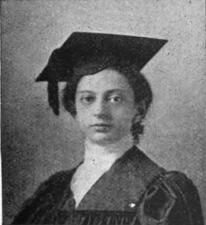Activism: Voting Rights
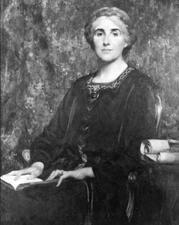
Nina Ruth Davis Salaman
Nina Salaman was a well-regarded Hebraist, known especially for her translations of medieval Hebrew poetry, at a time when Jewish scholarship in Europe was a male preserve. In addition to her translations, she published historical and critical essays, book reviews, and an anthology of Jewish readings for children, as well as poetry of her own.

Rosa Schapire
Rosa Schapire was one of the few women to pursue art history studies at a time when the discipline itself was still in its infancy. Her foray into this male-dominated profession was indicative of her allegiance to feminist aspirations to equal opportunity and adult suffrage.
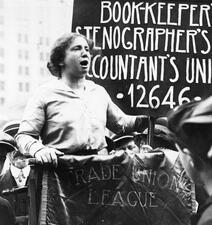
Rose Schneiderman

Adeline Schulberg
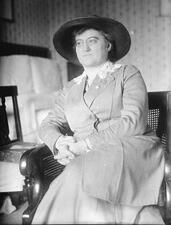
Rosika Schwimmer
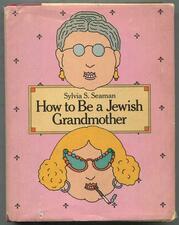
Sylvia Bernstein Seaman
“I’m still capable of marching. I marched sixty years ago. I just hope my granddaughter doesn’t have to march into the next century.” Sylvia Bernstein Seaman was a pioneering feminist of the twentieth century who broke the silence around breast cancer through her frank writing.
Helene Simon
Greatly influenced by the socialist ideology of the Fabian Society in London, Helene Simon was as a pioneer in the theory and practice of social policy and welfare in Germany. Simon was a major advocate for structural changes in Germany’s welfare system, especially for the benefit of women and children.
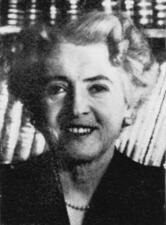
Bertha Solomon
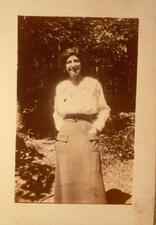
Maida Herman Solomon
Professor of social economy Maida Solomon was recognized as a pioneer in the field, contributing to the “invention” of the field of psychiatric social work and overseeing its definition, its development of standards, and its integration with the other institutions of modern American medicine and education—in short, its professionalism.
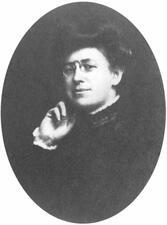
Pauline Perlmutter Steinem
Bessie Cleveland Stern
Bessie Cleveland Stern is most recognized for her work as statistician for the Maryland Board of Education. She collected and interpreted data about the Maryland school system from 1921 through 1948, and school officials turned to her for information to support appropriations measures and proposed changes in state laws relating to the schools.
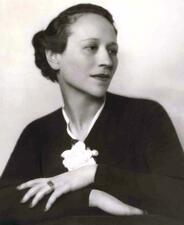
Edith Rosenwald Stern
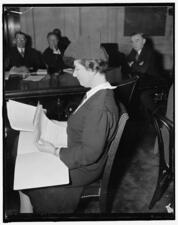
Dorothy Straus
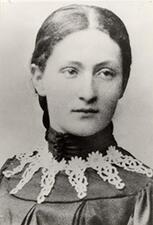
Rahel Straus
Rahel Goitein Straus, a pioneering woman medical doctor trained in Germany, was a model “New Jewish Woman” of the early-20th century. Successfully combining a career as a physician with marriage and motherhood, she committed herself to Jewish and feminist causes and organizations throughout her life, while also embracing Zionist ideals.
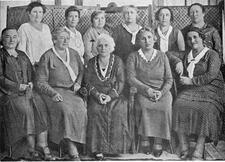
Suffrage in Palestine
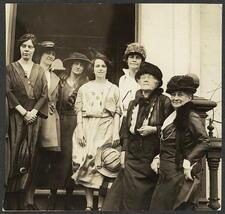
Suffrage in the United States
American Jewish women were heavily involved in the suffrage movement from its earliest days, though mostly as individuals rather than through organizations. Middle-class Jewish women believed the vote was necessary to achieve their broader reform goals, while working-class women hoped enfranchisement would improve their working conditions and economic opportunities. By the time the Nineteenth Amendment finally passed in 1919 the American Jewish community overwhelmingly supported it.
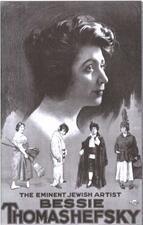
Bessie Thomashefsky
With suffragist spirit and comedic skill, Bessie Thomashefsky adapted great American and British plays for Yiddish-speaking audiences. Thomashefsky performed Yiddish adaptations of plays by Chekov, Wilde, and Shakespeare, as well as modern Yiddish creations at the People’s Theater in New York, playing many strong female characters. From 1915 to 1919, she ran the People’s Theater and renamed it for herself.

Union of Hebrew Women for Equal Rights in Erez Israel
Union of Jewish Women
Influenced by their American counterparts, Anglo-Jewish women organized a Conference of Jewish Women in 1902, which led to the foundation of a national organization, the Union of Jewish Women. The UJW determined the social service agenda for English Jewish women until World War I.
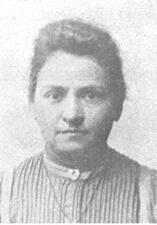
Roosje Vos
Roosje Vos was an organizer of the Dutch socialist movement and an editor of De Naaistersbode, the journal of the seamstresses’ trade union. She represented the interests of feminists and women in the movement, at times at odds with her fellow leaders.
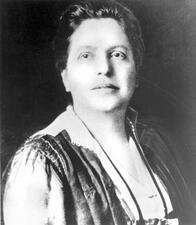
Lillian D. Wald
Guided by her vision of a unified humanity, Lillian D. Wald passionately dedicated herself to bettering the lives and working conditions of immigrants, women, and children. She founded the Henry Street Settlement in New York City and initiated America’s first public-school nursing program. A talented activist and administrator, Wald’s pathbreaking work continues to be memorialized.

Gertrude Weil
A dedicated activist for women’s rights and racial equality, Gertrude Weil showed that local, small-scale political action could have far-reaching effects. Her decision to associate herself with a relatively radical social and political agenda was unusual for a southern woman and even more uncommon for a southern Jew. Weil, however, strayed from this norm, because she believed that women had a responsibility to participate in the political process.
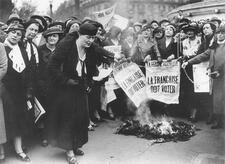
Louise Weiss
Considered an architect of European unity, Louise Weiss is best known for her campaigns on behalf of the peaceful resolution of international conflicts during the interwar years and the Cold War. She also worked on behalf of Jewish refugee rights in the late 1930s and was a leading feminist activist who focused on obtaining the right for French women to vote.

Rosa Welt-Straus
